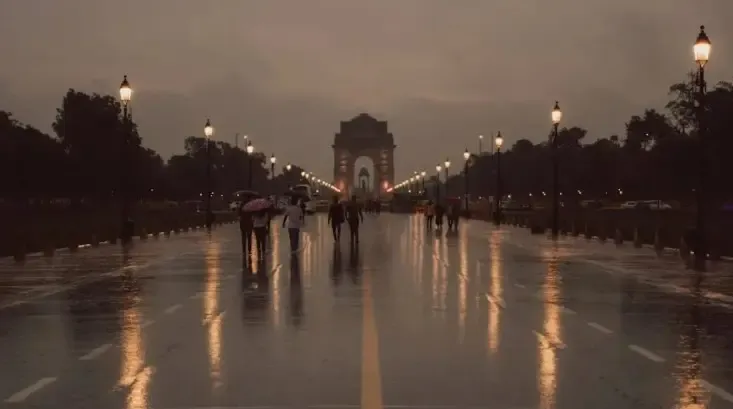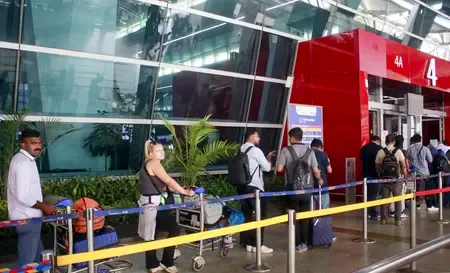Enhancement in Air Quality Amid Declining Pollution in India: World Air Quality Report

Synopsis
Key Takeaways
- India's air quality shows improvement in 2024.
- PM2.5 levels decreased by 7%.
- Delhi remains the most polluted capital.
- Experts call for enhanced pollution control measures.
- Continued efforts are essential for cleaner air.
New Delhi, March 11 (NationPress) The World Air Quality Report 2024 issued by Swiss air quality technology firm IQAir showcases an optimistic trend in India's air quality, despite persistent challenges.
As per the report, India is now positioned as the fifth most polluted country in the world in 2024, a significant improvement from its previous third-place status in 2023.
The nation has experienced a 7 percent reduction in PM2.5 levels, falling from 54.4 micrograms per cubic metre in 2023 to 50.6 micrograms per cubic metre in 2024.
Although 13 out of the 20 most polluted cities globally are situated in India, including Byrnihat, Delhi, and Faridabad, this reduction indicates a positive move towards tackling air pollution.
Delhi, which continues to hold the title of the most polluted capital city worldwide, experienced minimal change in its air quality, reporting an annual PM2.5 concentration of 91.6 micrograms per cubic metre in 2024, closely reflecting the 92.7 figure from 2023.
Despite these obstacles, India's achievements in lowering air pollution levels are commendable. The drop in PM2.5 concentrations signifies that the country is making progress in addressing air pollution, bolstered by various initiatives aimed at enhancing air quality. Such measures encompass improved data collection related to air quality, the promotion of cleaner energy options, and the upgrading of public transportation systems.
Nevertheless, experts, including former WHO chief scientist and health ministry advisor Soumya Swaminathan, stress the necessity for ongoing and intensified actions to tackle air pollution.
Swaminathan advocates for solutions such as endorsing the use of LPG instead of biomass, expanding public transit options, and offering more substantial subsidies for low-income households to further diminish pollution and enhance public health.
While air pollution continues to pose a major health risk, with approximately 1.5 million deaths annually attributed to PM2.5 exposure, India's initiatives to mitigate pollution are yielding beneficial results. The reduction in PM2.5 levels is an encouraging sign, and sustained efforts will be crucial to achieving even better air quality for everyone.
With these strategies in motion, India is on a path toward enhancing its air quality and minimizing the health hazards related to air pollution, fostering hope for a healthier tomorrow.









